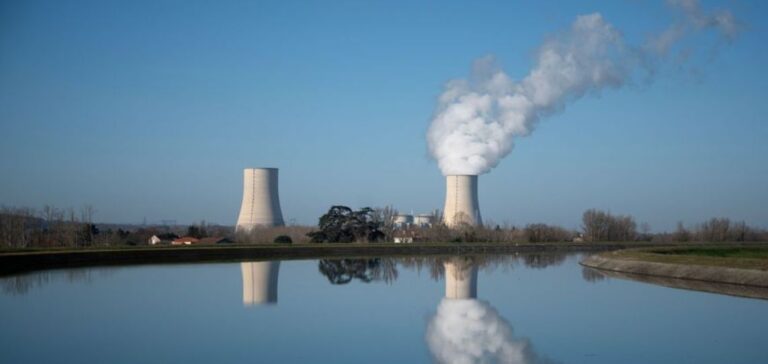On Thursday, Luc Rémont, CEO of EDF, was questioned by a hundred employees of the Golfech nuclear power plant (Tarn-et-Garonne) during his visit to the site. The employees, gathered at the call of the CGT, FO, CFE CGC, Sud énergie and CFDT unions, raised several concerns about their future and the future of the group.
Fight against the pension reform
The representative of the National Federation of Mines and Energy, Thomas Bozonnet, said on behalf of employees that “regarding the pension reform, the electricians and gas workers will be in the fight until the complete withdrawal of it, including obviously the abolition of our so-called special regime, but which is especially a pioneering regime.
Jonathan Mongin, CGT delegate at the Golfech power plant, stressed that “what was a formidable tool of independence for France has turned into an industrial and financial fiasco. The unions are also concerned about a lack of anticipation for the renewal of skills and EDF’s ability to attract future talent “to successfully revive the nuclear program.
EDF CEO listens to employees’ demands and commits to respond
Mr. Rémont replied that he had “listened carefully” to the employees’ demands and said that he would respond to the inter-union “during a discussion” scheduled for midday. However, the trade unions refused to talk to the CEO because of the “local and national social context” and the “permanent denial” of the management. The unions read a joint statement denouncing the “assaults” suffered by EDF “from all sides”.
Before the arrival of the CEO, Thomas Bozonnet expressed the concerns of employees about the stateization of EDF and the potential sale of the most profitable subsidiaries by the State as sole shareholder. As far as pensions are concerned, he hopes that Mr. Rémont will be given “an attentive ear” at the top of the State in order to pull “the general regime towards the special regimes” rather than abolishing them.
The Golfech power plant, built in the 1980s, is one of the key sites of the EDF Group. Employees and unions are waiting for concrete answers from management to reassure their future.





















